'I feel less alone': The pandemic's varied effects on wellbeing
 BBC
BBCA global poll commissioned by the BBC highlights the profound and diverse effect that the pandemic had on mental health, says the World Health Organization. A surprising number of people questioned, in 30 countries, report feeling better now than they did before Covid-19. The poll also suggests the effect of the pandemic on wellbeing is more pronounced in women and young people.
Nguyen Thanh Giang is on the phone to her dad as he marches through his garden, keen to show her his fruiting mango trees. He's delighted to hear from his daughter who lives 400km away in Ho Chi Minh city.
Before lockdown, Giang was busy running her printing business and raising her teenage son. She rarely called and could go two or three years without seeing her parents.
"We didn't really have a great relationship in the past but, after Covid, I realised I needed to get in touch with them more," she says.
"It really makes me feel like I'm not alone."
In a poll commissioned from GlobeScan by the BBC World Service, 36% of people around the world said they felt better now than before the pandemic, while 27% said they felt worse.
Many said that spending more time with family and having a better connection to their community and to nature had all had a positive effect, and they felt clearer about their overall priorities in life.
People in Vietnam, India, Egypt, and Nigeria were most likely to say they felt better, while in Japan, South Korea, and Hong Kong they were most likely to say the opposite.
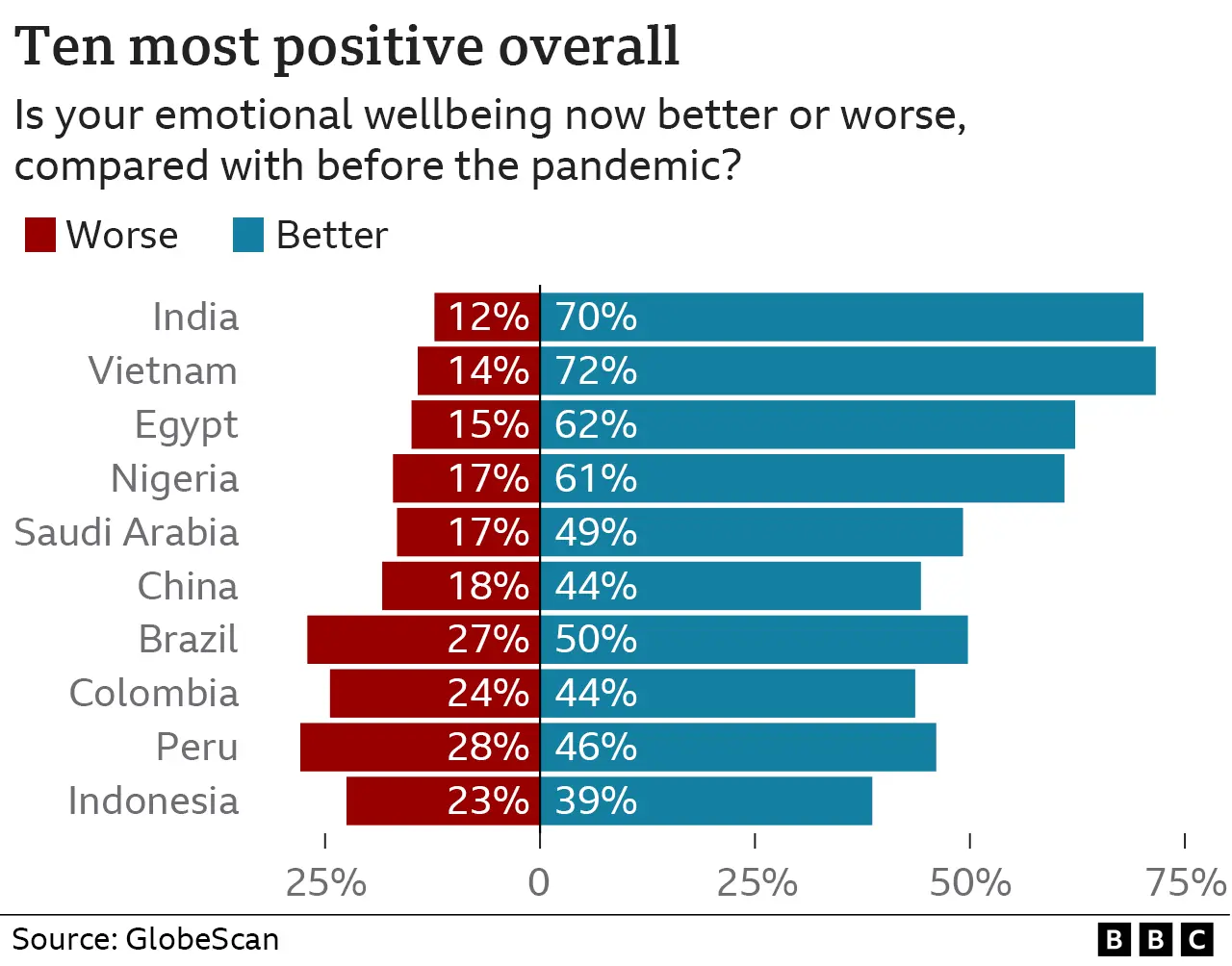
People in the UK who said they felt worse than before the pandemic narrowly outnumbered those who said they felt better, while in the US it was the other way round. In seven other European countries people were also more likely to respond negatively.
The poll was conducted online in June and July this year and reached more than 29,000 people.
"The GlobeScan findings show that the pandemic had a profound effect on the mental health of many people," a WHO spokesperson said. "This effect was not uniform, but diverse and differed between population groups."
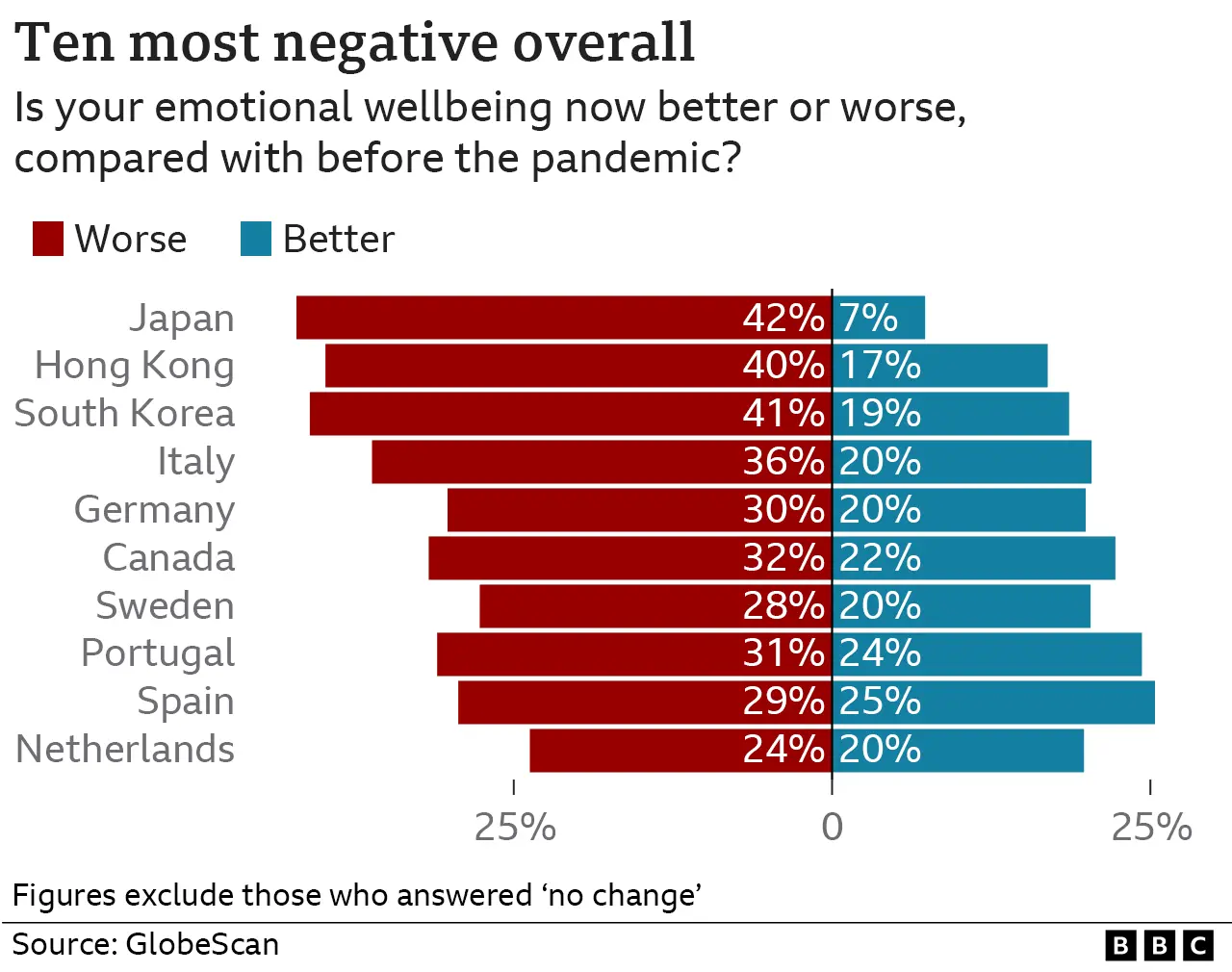
Like many young mothers, Tran Nguyen Kim Ngan struggled during Ho Chi Minh City's fourth and harshest lockdown, which started in June last year.
She had a new job and a one-year-old to contend with. "I was so exhausted that to find time for myself I just went to the toilet and stayed there for a few minutes. I took a breath in and out and then continued with my day," she says.
In almost all of the countries surveyed, women were more likely than men to report that the pandemic had a negative impact on their mental health. But the same factors that caused Ngan stress then are now helping her to feel better.
Parents living with children under 18 were more likely than others to say their mental health was better than before the pandemic.
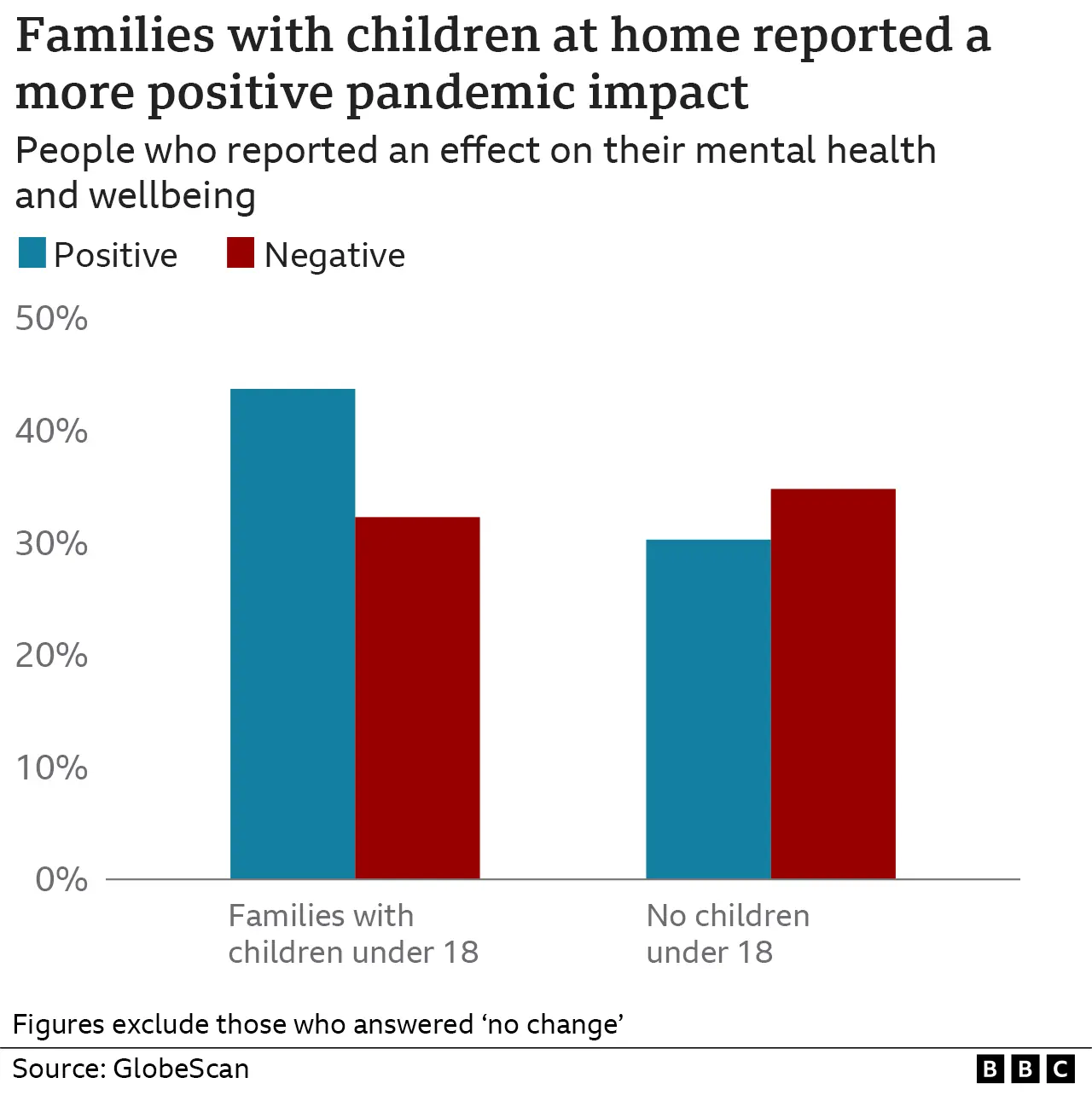
"I think for me it was easy to recover because I was so busy in my daily life, with work and my child," Ngan says.
The last two years also saw some major changes in her life. She was headhunted for a new job, bought an apartment with her husband and adopted a cat. She's even started learning Japanese.
"I think I'm braver after Covid," she says. "If I want to do something I just do it now. I don't delay."

But there were areas where men and women had much more in common, such as their increased sense of community and connectedness after the pandemic.
Andrew Oswald, professor of economics and behavioural science at the University of Warwick, cautions against reading too much into people's accounts of how they felt in the past.
"What we know is that there is a persistent kind of optimism-today bias. People look back and incorrectly tend to think that things were worse then and that they are happier now," he says. "This has been demonstrated in long-running longitudinal research by comparing recall levels of happiness with the actual levels of happiness when measured at the time."
But he says the findings on gender are consistent with his own work.
The World Happiness Report, which uses survey data from Gallup gathered each year for the past 10 years in 150 countries, suggests a long-term upward trend in stress, worry and sadness in most countries and a slight decline in the enjoyment of life.
However, it suggests that how people rate their lives has remained remarkably resilient during Covid-19. There has also been a global upsurge in the proportion of people reporting that they give money to charity, help strangers and do voluntary work.
Vietnam moved up two places in the World Happiness rankings this year.
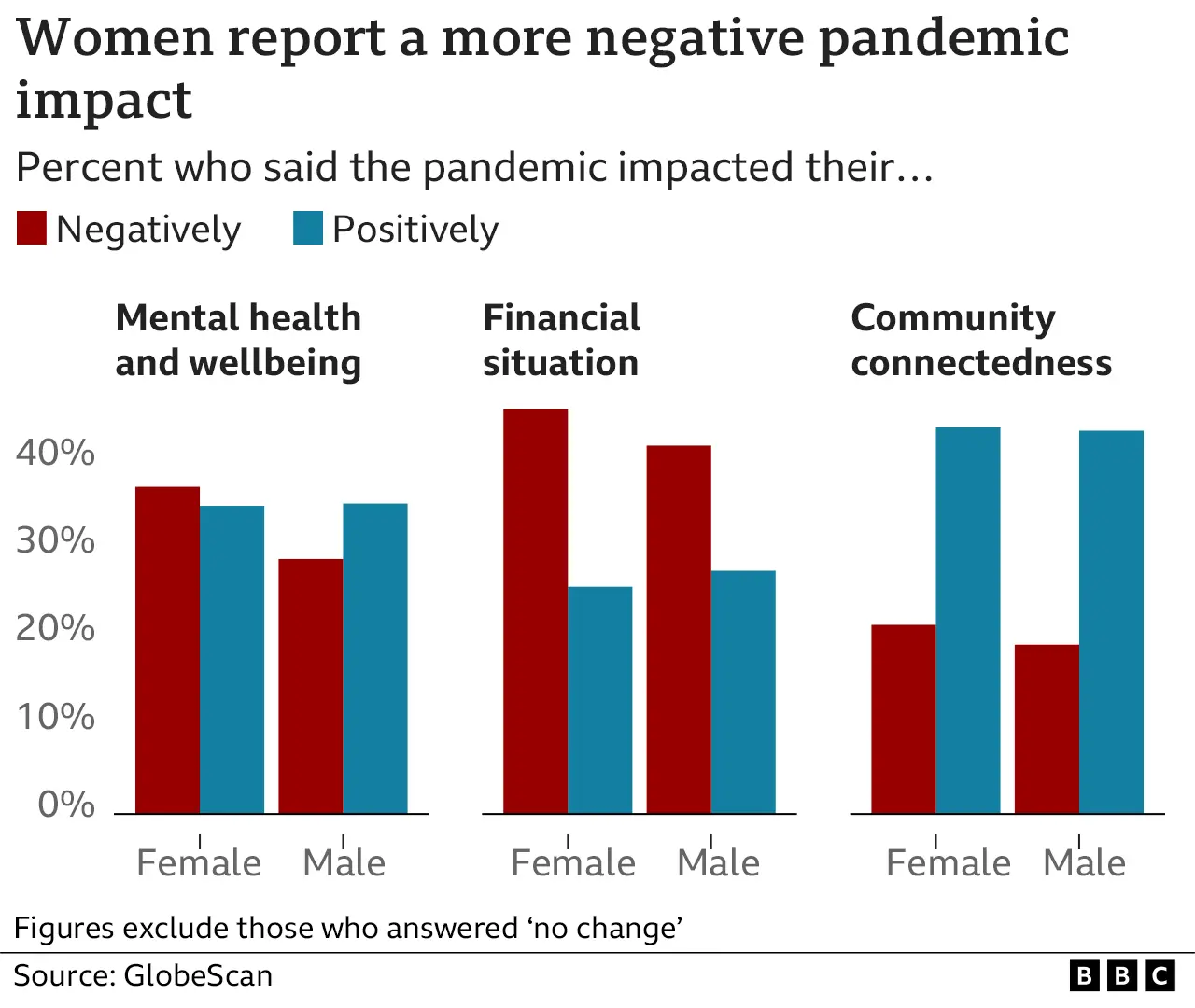
At the University of Social Sciences in Ho Chi Minh city, therapist Trinh Thanh Vi has seen a vast improvement in the mental health of her clients in the past year. She's part of a programme called Vaccine for the Mind that started during the pandemic.
It began with a mental health hotline providing support to people during last year's lockdown, as the city saw a surge in reports of anxiety and suicidal thoughts. Many were also suffering from grief and loss. Three-quarters of Vietnam's reported Covid deaths happened here.
Globally, a third of people surveyed say they lost a close loved one during the pandemic, with 56% of them saying that the death was influenced "a great deal" by Covid-19.
But Vi sees a silver lining in all of this - she believes that the past year has raised awareness of mental health in Vietnam. "Now people know where to seek help when they have mental health issues. When they have anxiety or a panic attack, they know where to go," she says.
She also found that during the city's harsh lockdown, people came together to provide food and support to one another.
"This belief in kindness helped people overcome the pandemic," she says. "In the Vaccine for the Mind programme, there were so many people who decided to come and volunteer for us. After the pandemic I realised my contact list had exploded."
The GlobeScan poll suggests that the pandemic's impact varied for different generations.

When Vietnam went into lockdown, Dang Quang Dung, author of the popular comic Meo Moc, started getting disturbing messages from his readers.
Dang's comic is written as a diary of his own life, his experience of studying abroad, of personal loss, of lockdown - in it he appears as a black cat. He shares these things with his readers, and this encourages them to share their experiences with him.
"There were a lot of messages with red flags about trauma, PTSD, things like that," his partner Wendy Truong explains. "And these were very young people as well."
Together they decided to start a new comic, one that focuses on mental health and offers advice from professionals.
In his research in the UK, Prof Andrew Oswald found that young people took the biggest wellbeing "hit" while the old were much less affected psychologically.
In GlobeScan's poll, young people aged 18-24 were much more likely to say the pandemic had a major effect on their mental health - either positive or negative. Older people were more likely to say it had no effect at all.
This may suggest varying attitudes to, or awareness of, mental health.
"My dad's a doctor but he doesn't recognise mental health as a real issue," Wendy says. "In Vietnam, it's really divided right now."
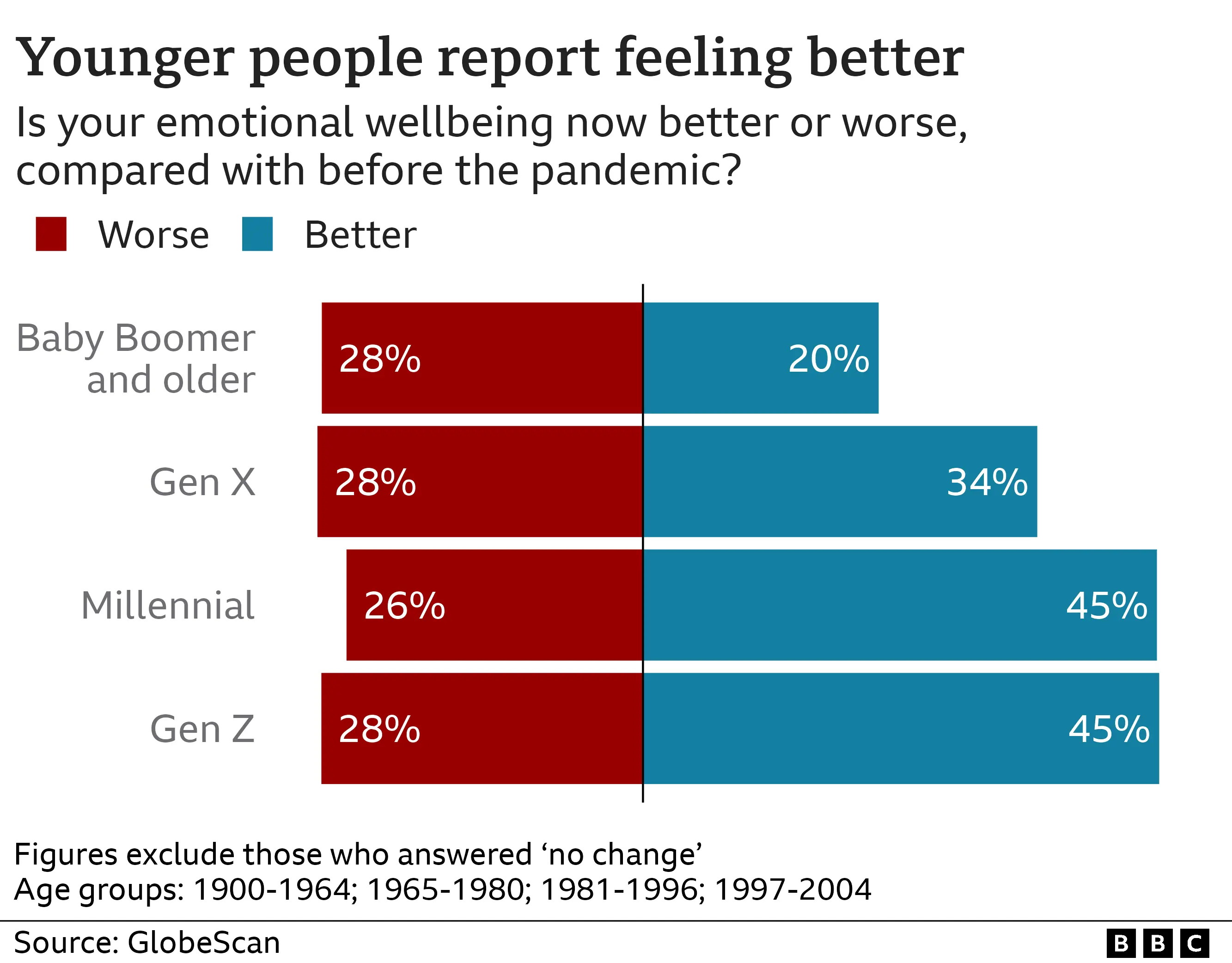
The younger people she knows are taking care of themselves now more than ever, organising group calls, checking up on each other more regularly or taking part in yoga or meditation.
Others who seem to have benefited more are those on higher incomes and people who live in cities.
This makes sense to Wendy, in a country where younger people are more likely to be urban white-collar workers.
"We didn't get hit, at least financially," she says. "We could afford to stay indoors and still do work and be employed. But I don't think that's the case for everybody. Think of the older uncles and aunties who had to work in factories.
"I think for millennials, it's a lot easier."
A WHO spokesperson said the findings of the poll emphasised that further research was needed on the pandemic's impact on mental health among specific at-risk populations. The spokesperson noted that outpatient mental health services had been particularly disrupted during the pandemic and that this had "further widened the mental health treatment gap".
"Future studies should therefore focus on scaling up mental health services and psychosocial support as a fundamental component in preparedness and response plans for future public health emergencies."
Additional reporting by Sarah Habershon
The full poll results can be downloaded on the GlobeScan website
